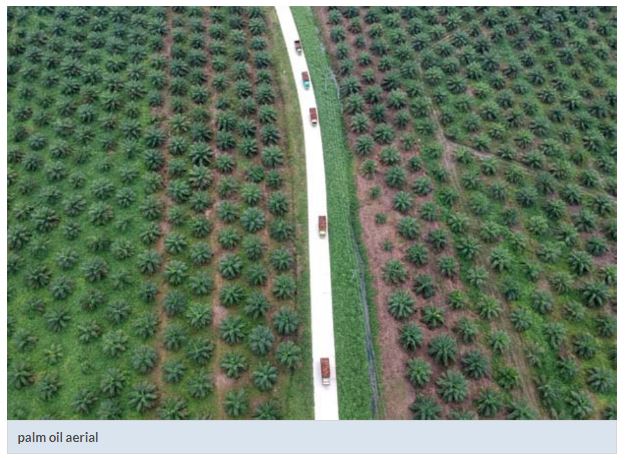Indonesia’s freeze on palm oil plantation permits lacks transparency
BANGKOK, Nov 6 (Reuters) – Indonesia’s freeze on palm oil plantation permits lacks transparency, making it difficult to assess its effectiveness, and the government should provide updated information, an industry watchdog official told Reuters.
In September last year the Indonesian government issued a presidential instruction to place a temporary ban on new permits for palm plantations for three years in a bid to protect the country’s tropical forests. The moratorium also gave the government authority to review existing licenses, and revoke them if the area has not yet been cleared.
But a year in, the lack of progress updates and data transparency has made it difficult for the industry’s stakeholders to evaluate the moratorium’s effectiveness, an official at the Roundtable on Sustainable Palm Oil (RSPO) said.
“We see that the (government’s) objective is to evaluate the status of how permits are given, if there are any loopholes within the system and see what has gone wrong. That’s good,” Tiur Rumondang, RSPO’s Indonesia country director said on Tuesday on the sidelines of an industry conference in Bangkok.
“But if that’s the case, you need to create a benchmark. We need to know how many permits have actually been given (before the freeze). It was never really made public how they’re going to see the results, whether it’s in the past year or for the next two years, so how do we actually measure its success?,” she added.
With around 12 million hectares (46,000 square miles) of palm plantations, Indonesia is the world’s biggest palm oil producer and environmentalists blame much of the country’s forest destruction on land clearance for the crop.
“Any updates from the government now would be really beneficial to RSPO. If there is any company that is found to practice illegality, we won’t need to have a long due diligence process when they apply to us. If it’s transparent to the public then it is clearer which part of this industry we should fix,” Rumondang said.
The RSPO certificate, seen as a global standard for sustainability claims, is used by plantations and consumer goods companies such as Nestle and Unilever to show there has been no environmental damage or labour abuses in their supply chain.
The Indonesian Coordinating Ministry of Economic Affairs, the ministry in charge for coordinating the moratorium across different government ministries, did not immediately respond to requests for comment.
Indonesia already has a moratorium on primary forest and peat land clearing, which has been regularly extended since it was first implemented in 2011.
Last month, the government said it could take back 1.4 million hectares (3.5 million acres) of forest as part of its ban on land clearing for palm plantations.
“Indonesia said they really support the move for sustainable palm oil, let’s start with transparency. That’s exactly what the global market needs,” Rumondang said. – Reuters
Source: https://www.thestar.com.my/business/business-news/2019/11/07/indonesia039s-freeze-on-palm-oil-plantation-permits-lacks-transparency#geYciKj2KCd3QTZW.99


 English
English




